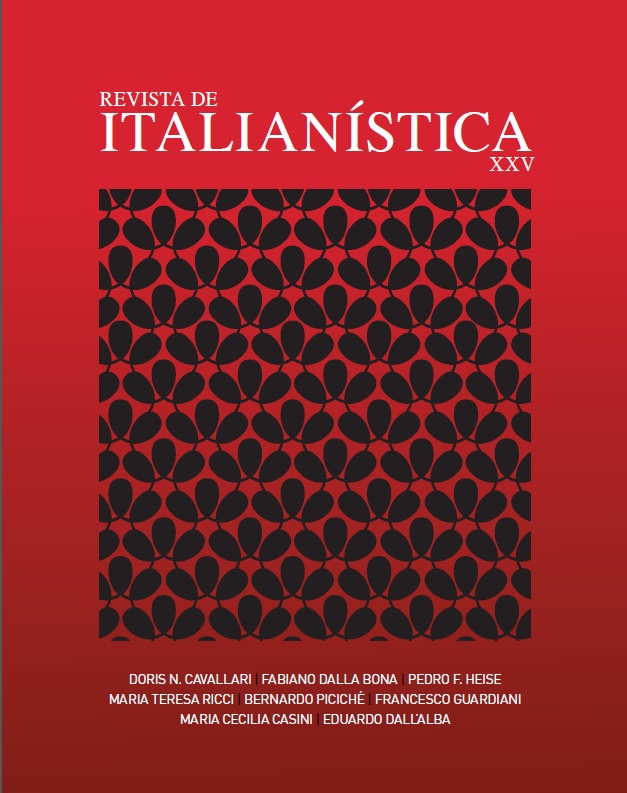As Etimologias de Giovanni Boccaccio
DOI:
https://doi.org/10.11606/issn.2238-8281.v0i25p27-35Palavras-chave:
Boccaccio, etimologia, poesia, mentiraResumo
Seguindo o preceito amplamente difuso na Idade Média de que “nomina sunt consequentia rerum”, Boccaccio nomeou suas obras de acordo com significados etimológicos, sobretudo de origem grega, às vezes com acepções criadas pelo próprio autor. Além dos títulos, os nomes dos personagens principais de quase toda sua produção literária também foram forjados segundo certas etimologias. Dentre os inúmeros casos apresentados pelo autor do Decameron, um se destaca: trata-se da origem do vocábulo “poeta”, demonstrada por Boccaccio em algumas de suas obras pós-decameronianas, a saber, a Genealogia deorum gentilium, o Trattatello in laude di Dante e as Esposizioni sopra la Comedia di Dante. Como se verá neste artigo, Boccaccio propôs mais de uma etimologia para “poeta”, provavelmente devido à polêmica cristã que julgava a poesia contrária à verdade, de modo que o poeta, que era um “fazedor de fábulas”, era considerado um mentiroso. Boccaccio, ao rebater essa afirmação, defende o lugar do poeta na sociedade de seu tempo, demonstrando a necessidade da poesia para o homemDownloads
Os dados de download ainda não estão disponíveis.
Downloads
Publicado
07-06-2013
Edição
Seção
Não definida
Licença
A revista retém os direitos patrimoniais dos artigos e os publica simultâneamente sob uma Licença Creative Commons-Atribuição-Não Comercial-Sem Derivações.
Como Citar
Heise, P. F. (2013). As Etimologias de Giovanni Boccaccio. Revista De Italianística, 25, 27-35. https://doi.org/10.11606/issn.2238-8281.v0i25p27-35











